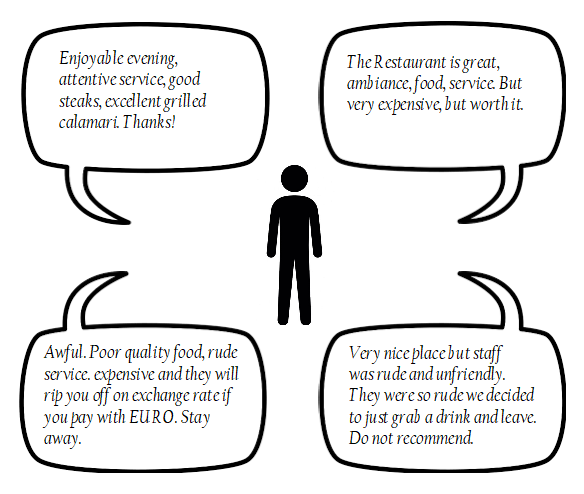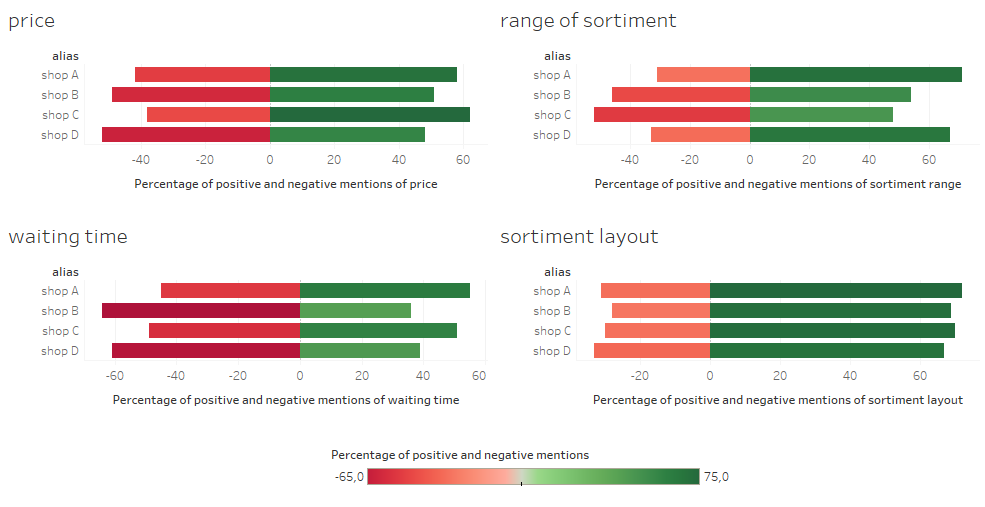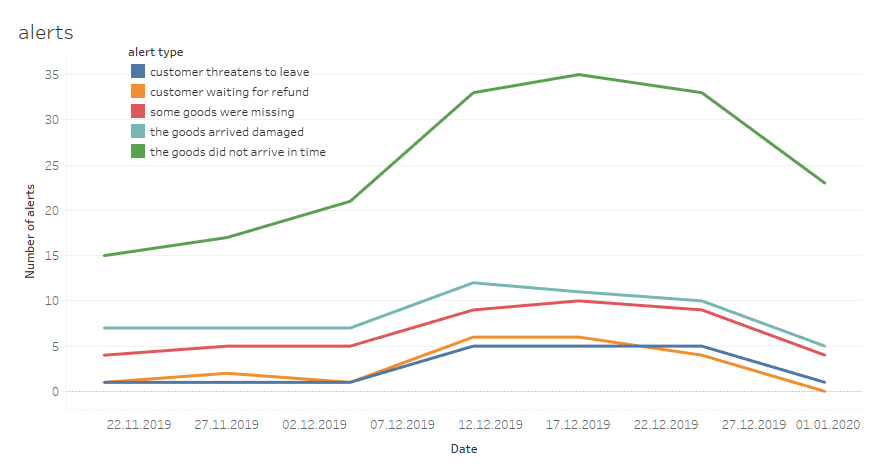Understanding customer feedback via Artificial Intelligence and Natural Language Processing
To stay successful and grow, businesses need to make wise decisions based on qualified and effective analyses of the right data. An increasing amount of data comes from the customers via social media and recommendation sites in the form of post-visit reviews, posts, and mentions. Such data contain significant business value as they often point out specific issues encountered by customers.

Unlike neatly ordered numbers in a database table, user reviews are unstructured. They are hard to process by computers and hard to quantify. However, thanks to The Interpretor, our Natural Language Processing (NLP) platform, we are able to access their hidden value and extract the most important information from the vast amount of user-generated content.
Let us introduce you into some of the NLP superpowers that could boost your business, whether you are a bank, restaurant chain, e-shop, or an airline.
Making sense of reviews
The Interpretor organizes customer feedback into meaningful clusters, capturing the content of reviews and taking into account your needs. For this, we use various approaches and techniques:
- Keywords and relations: Text analysis returns the most relevant meaningful words, phrases, and relations – e.g., unfriendly manager, knowledgeable staff, overcooked macaroni and cheese, racial discrimination.
- Domain-specific terms: For review analysis, we use customized models that take into account the language specifics of your business and identify relevant items – e.g., food items for restaurants, room types for hotels, or account types for banks.
- General categories: Out of the box, the Interpretor distinguishes when people talk about general categories, such as staff, service, price, or waiting time.
- Sentiment analysis: Are your customers satisfied with your service or products? What do they mention in a negative and positive way? Star ratings can give us a general idea about the customers’ satisfaction, however, unlike NLP, it is not able to recognize a specific subject with which people are satisfied or dissatisfied without bothering them with long questionnaires.
Alert detection
A successful business gets a lot of feedback. And even when using the techniques described above, one cannot review the analytics every second. But sometimes, a quick reaction is necessary: a customer is complaining of food poisoning, a blind person was kicked out of the restaurant for bringing in a dog, an employee was extremely rude, etc. This is where alerts come into play.
To generate alerts, we use various techniques such as anomaly detection or good old manually specified rules to identify important information that potentially needs to be acted upon quickly.
Curious what text analysis says about your data?
For starters, try our demo or API. You can also find our app in Keboola.




